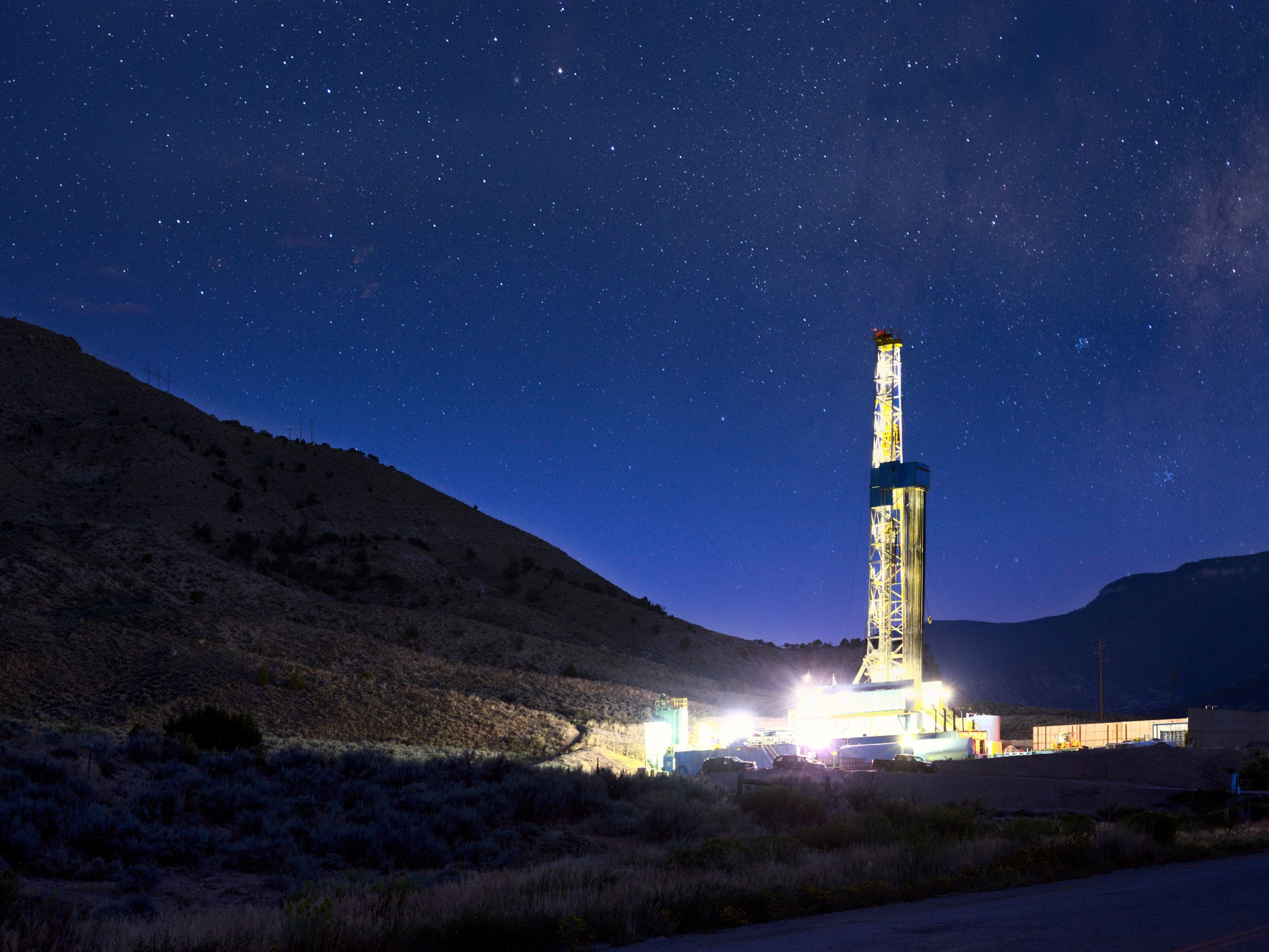Climate crisis: Trump to roll back Obama-era pollution regulations for oil and gas drilling designed to reduce methane emissions
White House ‘so determined to increase greenhouse gas pollution, it is shrugging off concerns from oil and gas companies’, campaigners say

Your support helps us to tell the story
From reproductive rights to climate change to Big Tech, The Independent is on the ground when the story is developing. Whether it's investigating the financials of Elon Musk's pro-Trump PAC or producing our latest documentary, 'The A Word', which shines a light on the American women fighting for reproductive rights, we know how important it is to parse out the facts from the messaging.
At such a critical moment in US history, we need reporters on the ground. Your donation allows us to keep sending journalists to speak to both sides of the story.
The Independent is trusted by Americans across the entire political spectrum. And unlike many other quality news outlets, we choose not to lock Americans out of our reporting and analysis with paywalls. We believe quality journalism should be available to everyone, paid for by those who can afford it.
Your support makes all the difference.The Trump administration plans to revoke Obama-era regulations designed to prevent hazardous methane leaks from oil and gas drilling operations, in a move which has even surprised those in fossil fuel industries.
The head of the Environmental Protection Agency, Andrew Wheeler said the proposed rule change was to follow Donald Trump’s directions to remove “unnecessary and duplicative regulatory burdens from the oil and gas industry”.
It is the latest step by the White House to further deregulate emissions controls on oil, gas and coal production, and comes a day after reports Mr Trump plans to tear down Clinton-era legislation to open up more than half of the world’s largest intact temperate rainforest in Alaska, to potential logging, energy and mining projects.
Methane is a potent greenhouse gas and its release into the atmosphere has a considerably stronger effect on global heating than the release of carbon dioxide. However, it occurs in smaller volumes and does not remain in the atmosphere as long.
A major study by Cornell University released earlier this month suggested the boom in fracking for shale gas and renewed oil extraction in the US has already led to a global spike in methane emissions blamed for accelerating a rise in average temperatures around the world.
The author of the study, Robert Howarth said: “It’s globally significant. It’s contributed to some of the increase in global warming we’ve seen and shale gas is a major player.”
Environmental advocates and former EPA officials had already said they expected the new methane plan to go further than previous proposals, with a goal of exempting companies from requirements to detect and stop methane leaks at existing oil and gas sites.
“Essentially, this is the umpteenth iteration of the EPA’s exercise to define away its Clean Air Act authority ... to address air pollution and greenhouse gases,” said Joseph Goffman, an EPA air official under President Barack Obama.
The oil and gas industry is the US’s primary source of methane emissions, according to the EPA, accounting for nearly one-third in 2016.
Some figures in the oil industry have dismissed concerns about the impact of the rule change, saying the direct immediate effect on methane emissions would be negligible. Controls on other, regulated pollutants would also capture methane in the pipeline, said Erik Milito of the American Petroleum Institute.
The Obama-era methane limits had “a disproportionate effect on small businesses” in the oil industry, Mr Milito added.
But the rollbacks on regulations on emissions from oilfields, storage sites and pipelines have split the oil industry, with some companies concerned about growing backlash to the policy in a world increasingly aware of the climate change crisis.
Royal Dutch Shell this year urged the administration to crack down – not ease up – on emissions. Nonetheless, many others in the oil and gas industry have welcomed Mr Trump’s approach.
The latest rollback “highlights the Trump administration’s complete contempt for our climate”, said Kassie Siegel of the Centre for Biological Diversity, an environmental group, in a statement.
“The EPA is now so determined to actually increase greenhouse pollution that it’s even shrugging off concerns from oil and gas companies about gutting these protections.”
Additional reporting by Associtated Press
Join our commenting forum
Join thought-provoking conversations, follow other Independent readers and see their replies
0Comments